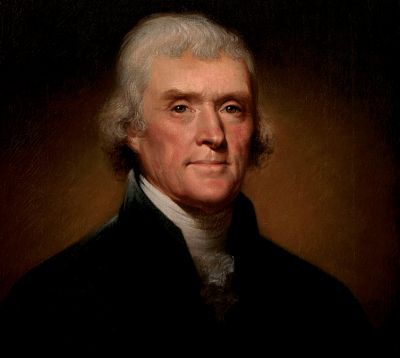10 Prominent Political Figures Accused of Plagiarism
1. Thomas Jefferson

It is believed by many that the third president of the United States technically engaged in plagiarism when writing the Declaration of Independence.
Historian and author George H. Smith noted that Jefferson's famous work bore strong resemblance to other contemporary documents, including a draft of the 1776 Virginia Declaration of Rights authored by fellow Virginia gentry man George Mason.
"The similarities between Mason's document and Jefferson's Rough Draft have led many historians to conclude that Jefferson drew from Mason while writing the Declaration," noted Smith.
"Such efforts to trace to earlier sources both the ideas expressed in Jefferson's Declaration and the particular wording he used are nothing new. Jefferson's contemporaries engaged in the same exercise, sometimes going so far as to accuse him of plagiarism, in effect. For example, Richard Henry Lee, Jefferson's fellow Virginian who made the original resolution for American Independence, claimed that Jefferson had copied from John Locke's Second Treatise of Government."
While Smith has concluded that Jefferson did not overtly steal wording from other sources, an author on ivn.us identified Jefferson as part of politics' "long, long history of plagiarism."
"It's well known that Jefferson drew heavily on the works of John Locke and others in his prose. The rewording of Locke's 'life, liberty, and pursuit of property,' is probably one of the best known examples," noted the IVN column.




























